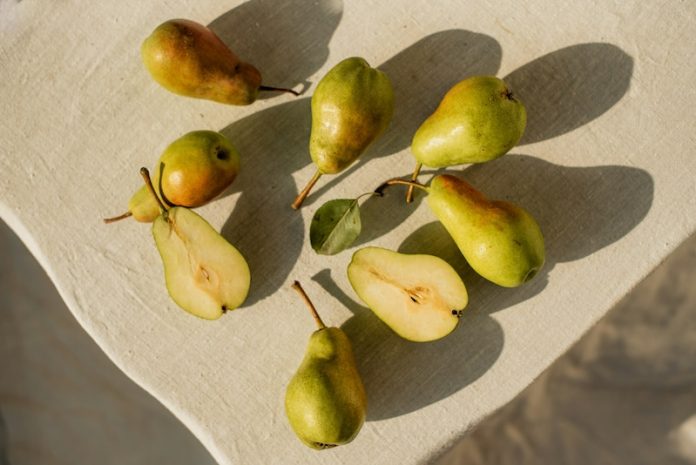
For people with type 2 diabetes, being mindful of the foods they eat is essential, and this includes fruits.
While fruits are rich in vitamins, fiber, and antioxidants that offer many health benefits, some fruits can cause a spike in blood sugar levels due to their high glycemic index (GI). Choosing the right fruits can make managing blood sugar easier.
What is Type 2 Diabetes?
Type 2 diabetes is a chronic condition that affects the way the body processes blood sugar. Normally, the hormone insulin helps move sugar from the blood into the cells for energy.
However, with type 2 diabetes, the body either doesn’t produce enough insulin or becomes resistant to it. This leads to elevated blood sugar levels, which can cause a range of health complications over time.
Best Fruits for Type 2 Diabetes
Berries
Berries are an excellent choice for people with type 2 diabetes because they are low in carbohydrates and have a low GI. Fruits like strawberries, blueberries, and raspberries are not only delicious but also rich in fiber, antioxidants, and vitamins.
A cup of strawberries contains about 12 grams of carbohydrates, while a cup of raspberries has only 7 grams. The combination of low carbs and high nutrients makes berries a great option for keeping blood sugar levels in check.
Avocado
Although technically a fruit, avocados are low in carbohydrates and packed with healthy fats and fiber. They also contain potassium, which helps support heart health. Avocados can improve insulin sensitivity and help with blood sugar management.
A medium-sized avocado contains about 17 grams of carbohydrates, but 13 grams of that is fiber, which slows down digestion and reduces blood sugar spikes.
Cherries
Cherries are another good option for managing blood sugar. They have a low GI and are relatively low in carbohydrates. In addition, cherries are full of antioxidants that reduce inflammation and protect against diseases.
A cup of cherries contains about 19 grams of carbohydrates, making them a tasty and healthy snack for people with diabetes.
Grapefruit
Grapefruit is a citrus fruit that’s low in calories and carbohydrates, making it a smart choice for people with diabetes.
It has a low GI and is packed with fiber, vitamins, and antioxidants. Half a grapefruit contains about 11 grams of carbohydrates, so it can be easily included in a balanced diet.
Apples
Apples are well known for being high in fiber, which helps regulate blood sugar. They also contain antioxidants that offer heart-health benefits. While apples do have a moderate carbohydrate content, their low GI makes them a good option for people with diabetes.
A medium-sized apple contains about 25 grams of carbohydrates, but with 4 grams of fiber, they help slow down sugar absorption.
Worst Fruits for Type 2 Diabetes
Watermelon
Watermelon, though refreshing, is a high GI fruit that can cause blood sugar levels to spike quickly. While it’s low in carbohydrates and calories, its high sugar content can be problematic for people with diabetes. A cup of watermelon contains about 11 grams of carbohydrates.
Pineapple
Pineapple is another high GI fruit. It’s high in sugar and carbohydrates, which can lead to a rapid rise in blood sugar levels. A cup of pineapple contains about 22 grams of carbohydrates, so it’s best to limit consumption.
Mangoes
Mangoes, though delicious, are packed with sugar and carbohydrates, making them a poor choice for managing blood sugar levels. A cup of mangoes contains about 28 grams of carbohydrates and can cause significant blood sugar spikes due to their high GI.
Grapes
Grapes, while healthy in moderation, are high in sugar and carbohydrates, with a high GI. A cup of grapes contains about 27 grams of carbohydrates, making them less suitable for those trying to manage blood sugar levels.
Dried Fruits
Dried fruits, such as raisins, dates, and prunes, are dense in carbohydrates and sugar. Even though they contain fiber and nutrients, their concentrated sugar can lead to a rapid rise in blood sugar levels.
A small box of raisins contains about 34 grams of carbohydrates, so dried fruits should be eaten in very small portions or avoided altogether.
Fruit Juice
Fruit juice, despite being made from fruit, is not a good choice for people with diabetes. Most fruit juices are high in sugar and lack fiber, which is key to slowing the absorption of sugar into the bloodstream.
A cup of orange juice contains about 26 grams of carbohydrates, which can quickly raise blood sugar levels.
Conclusion
Fruits are a vital part of a healthy diet, but for people with type 2 diabetes, choosing low-GI fruits is essential. Berries, avocados, grapefruit, and apples are all great options that provide important nutrients without causing blood sugar spikes.
On the other hand, high-GI fruits like watermelon, pineapple, mangoes, and grapes should be limited. Dried fruits and fruit juices are also high in sugar and carbohydrates, so they should be consumed sparingly.
By eating a variety of fruits in moderation and focusing on low-GI options, people with diabetes can manage their blood sugar levels and reduce the risk of complications associated with the condition.
If you care about diabetes, please read studies about Vitamin D and type 2 diabetes, and to people with diabetes, some fruits are better than others.
For more information about diabetes, please see recent studies that low calorie diets may help reverse diabetes, and 5 vitamins that may prevent complication in diabetes.
Copyright © 2024 Knowridge Science Report. All rights reserved.



